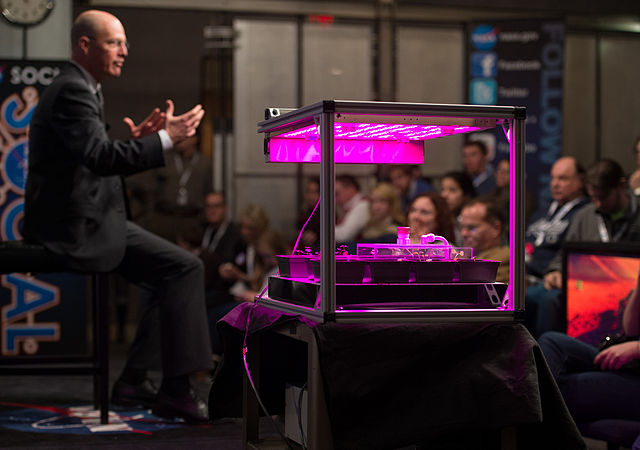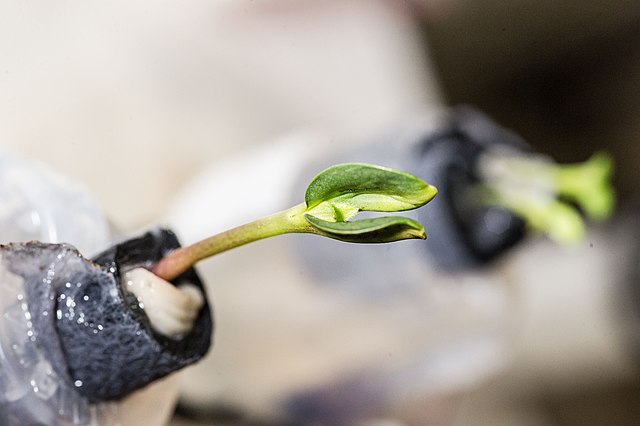Astrobotany is an applied sub-discipline of botany that is the study of plants in space environments. It is a branch of astrobiology and botany.
A zucchini being grown on the International Space Station
The arugula-like lettuce Mizuna growing for Veg-03
'Outredgeous' red lettuce cultivar grown aboard the International Space Station.
Lettuce being grown and harvested in the International Space Station before being frozen and returned to Earth.
The growth of plants in outer space has elicited much scientific interest. In the late 20th and early 21st century, plants were often taken into space in low Earth orbit to be grown in a weightless but pressurized controlled environment, sometimes called space gardens. In the context of human spaceflight, they can be consumed as food and provide a refreshing atmosphere. Plants can metabolize carbon dioxide in the air to produce valuable oxygen, and can help control cabin humidity. Growing plants in space may provide a psychological benefit to human spaceflight crews. Usually the plants were part of studies or technical development to further develop space gardens or conduct science experiments. To date plants taken into space have had mostly scientific interest, with only limited contributions to the functionality of the spacecraft, however the Apollo Moon tree project was more or less forestry inspired mission and the trees are part of a country's bicentennial celebration.

Zinnia plant in bloom aboard an Earth orbiting space station
Vegetable Production System for ISS being discussed
The arugula-like lettuce Mizuna growing for Veg-03
A young sunflower plant aboard the ISS







